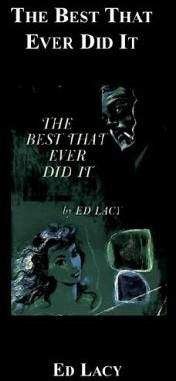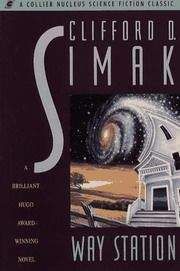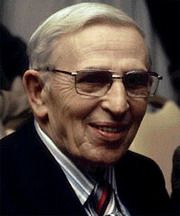Ed Lacy - The Best That Ever Did It
На сайте mybooks.club вы можете бесплатно читать книги онлайн без регистрации, включая Ed Lacy - The Best That Ever Did It. Жанр: Прочее издательство неизвестно,. Доступна полная версия книги с кратким содержанием для предварительного ознакомления, аннотацией (предисловием), рецензиями от других читателей и их экспертным мнением.
Кроме того, на сайте mybooks.club вы найдете множество новинок, которые стоит прочитать.

Ed Lacy - The Best That Ever Did It краткое содержание
The Best That Ever Did It читать онлайн бесплатно
The Best That Ever Did It
Ed Lacy
This page formatted 2004 Blackmask Online.
http://www.blackmask.com
PREFACECHAPTER 1CHAPTER 2CHAPTER 3CHAPTER 4CHAPTER 5CHAPTER 6CHAPTER 7
PREFACE
IT WAS just another ordinary and dreary bar on Amsterdam Avenue in that part of New York City called Washington Heights. Why it was named The Grand Cafe nobody seems to know. It had neither gaudy neon lights nor air conditioning, and the small screen TV perched in one corner was the same set it had had when TV was a novelty.
It was like an old-fashioned saloon, although it only dated back to 1923. (During Prohibition it was called the Grand Cafe Ice Cream Parlour and openly sold needle beer and very little ice cream.) It was called a bar, rarely a cafe, a joint, a gin-mill, a dive, and a dump. Strangely enough nobody ever called the place what it really was... home.
Certainly not the best of homes, but after a long day at a dull job a man could skip returning to his lonely dingy room and drop into the Grand—which became his living room—for a beer and see the regulars nod at him, hear Jimmy-the bartender-mutter “Hello...” which may have been the only friendly word the man heard all day.
A man could escape—temporarily—the bitterness of tenement poverty that drained his wife's youth and made his children merely pests... by dropping into the bar, which became his den, and watching the ball game or the fights on TV, join in the brassy and meaningless small talk.
In the afternoons a few housewives would come in for a fast beer, to gossip and find out what number was leading. Or just to get a snack, for any time during the day or night you could get a thick hamburger, and it was assumed you wanted a heavy slice of onion and a pickle on it.
In short: in the Grand Cafe a human could still find a small measure of warmth and dignity in the company of other humans.
On this particular evening, when the men were murdered, the bar was crowded and full of cheer because Lady Luck had gently tickled one of the regulars. His name was Franklin (“But call me Frank") Andersun and he was a thin young man in his late twenties with the kind of face women didn't look at twice, or even once. As befitting the night's celebrity, Andersun was standing at the center of the bar and the others were buying him beers—and he had been trying to make the men's room for the last half hour.
“Tell me, Frankie boy,” a newcomer said, shaking his hand and anchoring him to the bar, “how did you work it? I'm reading the paper in the subway and I see your name. Gave me a bang. They really give you a thousand bucks for writing them few words? What was they again?”
“'I eat Nutsy Pudding because I know what I like and I like Nutsy,'“ an elderly man repeated, shaking his large head as he talked. “What a way to make a thousand!”
Jimmy the bartender was short and fat, with liver spots on his hands and freckles on his wrinkled face, and all his skin had a preserved, wax-like look to it. Pouring a beer he said, “And that's the trouble with the world, everybody thinks something is easy, after they see it done.”
“It was easy, it was the truth,” Andersun said. “I'm a fussy eater but I go for that pudding. Eat it like a pig.”
“And you're heading for Europe?” the newcomer asked.
“Yeah. But I got to go to the John now or my kidneys will float out of my mouth,” Frank said, finally breaking away from the men around him.
“Jimmy, what's he want to go to Europe for?” the newcomer asked the barkeep.
“He just wants to, I guess.”
At the end of the bar nearest the door a place was reserved by custom for Danny Macci, whose tremendous shoulders made him look short, although he was well over six feet tall. He had bushy strong hair that was all gray, an ugly face, and a large square chin. Danny had been a professional wrestler back in a TV-less era when wrestling wasn't such a busy profession, and along with a pair of ears thickened like stuffed prunes, Macci had also contracted an eye disease that left him blind. He lived on a monthly relief check and had little trouble cadging beers from the regulars, and even from Jimmy. At the drop of a beer cap Danny would lecture about “Them lousy clowns they call wrestlers today,” or show off his muscles. Now he put down his glass of beer, asked, “Why shouldn't the lad go to Europe? Be nice to hear strange sights and people. Wish I was going.”
“Had your eyes, you'd be wrestling all over the world today,” Jimmy said.
“That's the truth. I'm near sixty but I'm still a wrestler, not an acrobat. Still got my strength.” He held up a thick, gnarled hand. “Anybody want to see me crush a beer can?”
“Now, Danny, ain't necessary to do that,” Jimmy said. “You got two beers coming up.”
Another regular said, “If I was a young man like Frank, I'd open a store with the money.”
“Does surprise me,” Jimmy said, moving down the bar with three beers (except for strangers, beer was the week-night drink, with a whiskey or two thrown in on Saturday nights), “because Frank used to talk so much about the money to be made if a fellow got a start.”
“What's a grand for a business?” somebody chimed in. “Start on a shoestring and you end up hanging yourself with it.”
Andersun returned to the bar and thanked another newcomer who had a beer ready for him. The newcomer asked, “Wasn't you in Europe when you were a pilot?”
“I was a waist gunner, not a pilot,” Frank told him. “We got to England just when the war was over in Germany and we flew our B-17's back to the States, started training for the Pacific. Never got there either. In flying, you're always looking down at things. Now I want to see what's going on down there.”
“Quitting your job?”
Frank nodded. “Sure. I'll be a stock clerk someplace else after I see what makes Paris tick.” He finished his beer. “Near eleven. Guess I'll float on home. See you, Jimmy.”
“When you leaving?”
“Not for several weeks. Haven't seen about my passport or boat tickets yet. They only told me I won last night.”
“And the reporters came right up to see you,” Danny added.
“Not a reporter, the company's public-relations man phoned. He planted the story. See you tomorrow.”
As Andersun left, the regular who wanted to open a business said, “Soldier is always a soldier, hey, Jimmy? Remember the way we spent our bonus money back in... When was that, '29, '32, '34, or when?”
“I forget the year but it was the only time I was loaded,” Jimmy said. “Tell you, soldiers in the second war are different, more serious, like Frank. They were in longer, saw more action.”
“But they never faced no gas like we did. I remember the time...”
“Soldiers, soldiers, big bullying heroes!” Danny cut in loudly. In 1917 he only had partial sight and was rejected.
“That's no way to talk.”
Danny turned to face the man. “I talk any damn way I want —unless you think you can stop me!”
Even when he was staggering drunk no one ever tangled with Danny, and it wasn't because he was blind—those thick arms could squeeze a man to death.
“Danny, take it slow,” Jimmy said softly. “And finish your beer.”
The bar quieted down. A woman put a nickel in the ancient juke box and there was the usual small talk. Outside, two brief, sharp clear sounds were made and Danny looked up from his beer, said, “Hear that? They were shots.”
“Aw Danny, slow down. A car backfiring,” Jimmy said.
“That's right, we heard enough shots in the woods at Verdun to recognize guns, didn't we, Jimmy? I'll never forget...”
A young man came rushing into the bar, full of breathless self-importance at the news he carried. He yelled, “Two guys was shot dead outside! One of them is Frank Andersun!”
Some twenty feet from the corner, where the light from Amsterdam Avenue started to fade into the dimness of the block, a crowd made a rough circle around the bodies. A radio car was parked in the middle of the street and a cop kept growling, “Stand back. Come on, stand back.”
Franklin Andersun was lying on his side—and what was left of his face—arms and legs flung out at grotesque angles. Further down the block, next to an automobile, was the body of a man about the same age as Andersun but better dressed. He had been shot cleanly in the back and except for his open glassy eyes, lay on the sidewalk as though he was sleeping.
The crowd, growing every second, was quiet—even people leaning out of the surrounding apartment house windows were still. It had taken Danny longer to reach the scene than the others and now he tapped his dirty white cane as he said, “Killed? Told you big soldier heroes they were shots!” There was a high note of almost savage triumph in his ragged voice.
One of the cops said, “Shut up.”
“Make me! I'll...!” The words were cut off as Jimmy covered Danny's mouth, whispered, “Cops.”
Radio and squad cars converged on the circle of people and a score of detectives went to work. Suddenly one of the detectives bending over the second body called out, “This one, he's got a badge on him!”
The crowd stared at the man shot in the back and an uneasy murmur swelled and burst when somebody shrilled, “Jeez, a cop was knocked off!”
There was surprise, alarm, and a slight trace of enjoyment in the voice, and in the general murmur of the crowd. Then everybody began to talk in whispers.
CHAPTER 1
SOME JERK kept driving his fancy Italian-made sport roadster after a piston ring broke, and of course the motor overheated and got on fire. I was rewiring it, and these low underslung jobs are tough for a guy my size. But it was an interesting car, everything designed for speed, including the high compression cylinders, so narrow I couldn't get my hand into them. As I was wondering why a person would spend so much dough to import a sweet job like this and then not take care of it, Joe—the garage manager—yelled out from the phone booth, “Barney— for you.”
It was Cy O'Hara, the real-estate man who shared my midget office. Cy said, “There's a Mrs. Turner to see you. How soon will you be back, Mr. Harris?” Naturally the “Mr.” was for the client's benefit.
“I'm busy on this job. I don't know any Mrs. Turner. She say an insurance company sent her? Does she look like money —or is she selling something?”
Cy said, “Why no, Mr. Harris, the insurance company didn't call. As to the other matter you asked me to look into—a rather attractive piece of property and I think the finances are sound. Oh, what about Mrs. Turner?”
“Okay, you corny double-talker. Thanks for calling me. I'll be up in ten minutes,” I told Cy, hanging up.
As I was taking off my coveralls, Joe came over and asked, “Got a case, Barney?” He was a big brown heavy-set man bigger than me, with a busted nose: he once tried to be a heavyweight boxer. He also had bad teeth that didn't show up against the deep brown of his face. “Another stolen car?”
“Don't know yet. Any rush on this foreign heap, Joe?”
“Naw. How's it coming?”
“Tricky job, but neat. Need another four or five hours on it,” I said.
When I entered the office, Cy went through the sudden-appointment routine, gave me a number where he could be reached—which was the coffeepot downstairs. We had a rule that whenever one of us was busy, the other would take a walk. If we were both busy at the same time, that would be quite a problem, but business had never been that good.
I sat down at my desk and the woman sitting opposite me was about twenty-three, twenty-four, very correctly and expensively dressed in black. She was solidly built, the kind of strong figure the street-corner whistlers call “Built up from the ground.” She either had good breasts or a smart bra, and when you got to the face—it didn't belong to either the figure or the clothes; it was a teen-ager's face, very solemn and big-eyed, her dark hair even-cut in bangs. If she wasn't pretty, she was a bit on the cute side.
She asked, “Are you Barney Harris, the private detective?” Her voice was a nervous squeak and I enjoyed that “the private detective.”
I nodded at my license hanging on the wall. “That says I'm a private detective.”
“I'm Mrs. Betsy Turner.”
The “Betsy” went with the schoolgirl face and thin voice. I made one of my deductions—she wanted her playboy husband tailed. As usual, as a private eye, I was still a good mechanic, for she said, “My husband is Edward Turner, the detective who was killed in the double shooting up on Amsterdam Avenue ten days ago. You've been recommended to me. What are your rates, Mr. Harris?”
“Thirty dollars a day, plus expenses.”
“I'd like to hire you.”
“To do what?” I asked politely, trying to comb my wild hair with my left hand.
“To find my husband's killer.”
If my mouth wasn't open, it should have been, I was that astonished. “You want to hire me...? Mrs. Turner, I read about the murders, but... a cop has been killed. The police will find the killer.”
“The police department isn't acting fast enough for me.” Her voice was so frail, almost helpless, it was interesting.
“Mrs. Turner, when one of their own is killed, the police pull out all the stops—they have to for self-protection. Also, despite the 'private eyes' you've seen on TV and in the movies, I've never had a criminal case in my life, never slugged anybody since I was ten, never carried a gun. I don't even do guard work. Mostly cars, skip-tracing, and following two-timing husbands and wives around. What I'm trying to tell you is: I'm just me, and the police are a thousand men with an army of stoolies and equipment. What makes you think I could move faster than they can?”
“You can help.”
I tried to keep my laugh down in my belly. “I'd probably be a stumbling block. My advice is let the police...”
“Lieutenant Swan, who was Ed's boss, recommended you.”
I sighed—that explained everything. “Mrs. Turner, that... eh... clown is some kind of brother-in-law of mine. Let the police do the job; they can do it much better than any private investigator, believe me.”
Those big eyes studied me for a long moment, ran over my bulky body, my cheap suit and worn shirt. Then she said, “I'm impressed with your honesty and frankness, Mr. Harris. I'll hire you.”
Похожие книги на "The Best That Ever Did It", Ed Lacy
Ed Lacy читать все книги автора по порядку
Ed Lacy - все книги автора в одном месте читать по порядку полные версии на сайте онлайн библиотеки mybooks.club.


